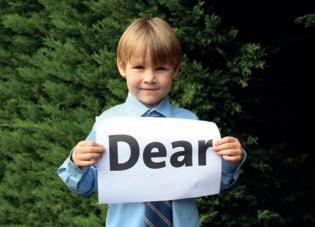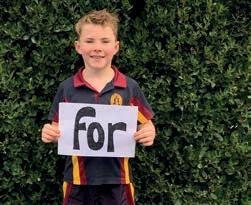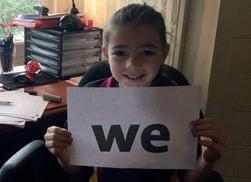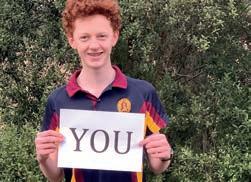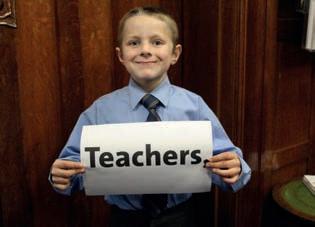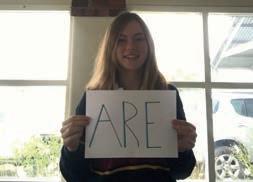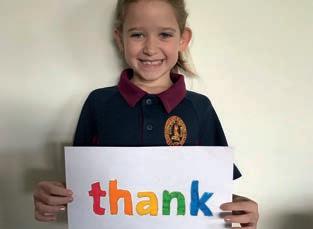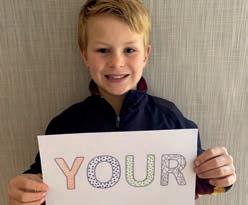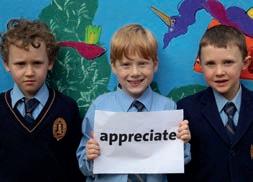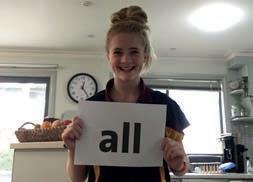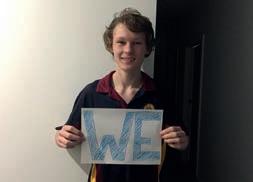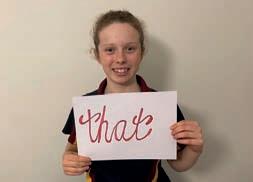THE IVY & THE TOWER

Doing things differently can lead to something Exceptional!



Doing things differently can lead to something Exceptional!

Olivia Anagnostou and Jock Keiller
Welcome to the first edition of The Ivy and the Tower for 2020. We’d like to begin this edition by acknowledging the proud history of this College and the strides taken for continual progress through innovative education. We are writing this message from home due to the COVID-19 pandemic and we are well into Term 2 of remote learning, so we are experiencing innovation and creativity on a daily basis!
As Year 12 students, and like everyone across the world, we are concerned about the coming months. For us, we are considering how this will affect our final year of secondary school. Although much is unknown, we feel well supported by the school and are in constant contact with our VCE teachers and classmates.
At the start of 2020, our Year 12 cohort decided our final year motto would be: ‘We strive for progress not perfection’ This motto resonates with our passion to be hard-working but more importantly, the notion of constantly improving. This is how we grow as a school, as a cohort and as individuals.
We believe this is an important message that everyone can incorporate, not only within their schooling but in life. Due to life’s daily challenges (now more than ever!), we often find ourselves faced with moments of disappointment, frustration and failure, however we should never underestimate our capabilities as students of this College. This school community encourages each student to uncover their potential, whether that be in the classroom, the arts, sport or through community service.

CONGRATULATIONS TO THE CLASS OF 2019... see page 6
REMOTE LEARNING APPROACH
SENIOR SCHOOL... see page 8
JUNIOR SCHOOL... see page 10
VALE DR GEOFF HANDBURY... see page 13
COMMUNITY NEWS... see page 14
THANK YOU TO OUR OCs ON THE FRONTLINE... see page 15
As students, we need to make this realisation for ourselves. No matter how many people push us to the best of our ability, it will not be reached unless we believe we are worthy and capable of reaching this ourselves.
We are incredibly grateful to be in a school environment where everyone is valued. Thank you to the invested teachers and staff, who support us to continually improve, formulate high and attainable goals and strive towards an exciting and confident future.
College truly does seek the best for and from every student and when we graduate from our final year, we will leave as the proud Class of 2020…and COVID-19 will be behind us!
Note from the editor: At the time of planning this edition of The Ivy and the Tower, the implications of COVID-19 were just beginning to be felt. College decided to produce the Ivy but to limit it to an online version for budgetary reasons. Also, the content was written before mid-May and is a reflection of that point in time. 2020 will certainly be a poignant year in the College’s 148 year history! We hope that our current and past College community members are well and that you enjoy this different edition.
KANTOR MPAC
A stunning facility… a memorable experience
FIND US ON FACEBOOK
@TheHamiltonandAlexandraCollege
‘Like’ us and follow the fun of daily life at the College as well as stories about Collegians past and present.
FOLLOW US ON INSTAGRAM
@Hamiltoncollege_au

CONNECT WITH US ON WECHAT
@Hamiltoncollege_au
Cover photo: Year 6 student, Sophie Spence, participating in the Remote Learning Program at home
Photo this page: Principal, Dr Andrew Hirst with School Captains Jock Keiller and Olivia Anagnostou
Photography: Alana Brown, Liz Crothers, Ashlyn Hiscock, Jen Hutton, parents, students and teachers
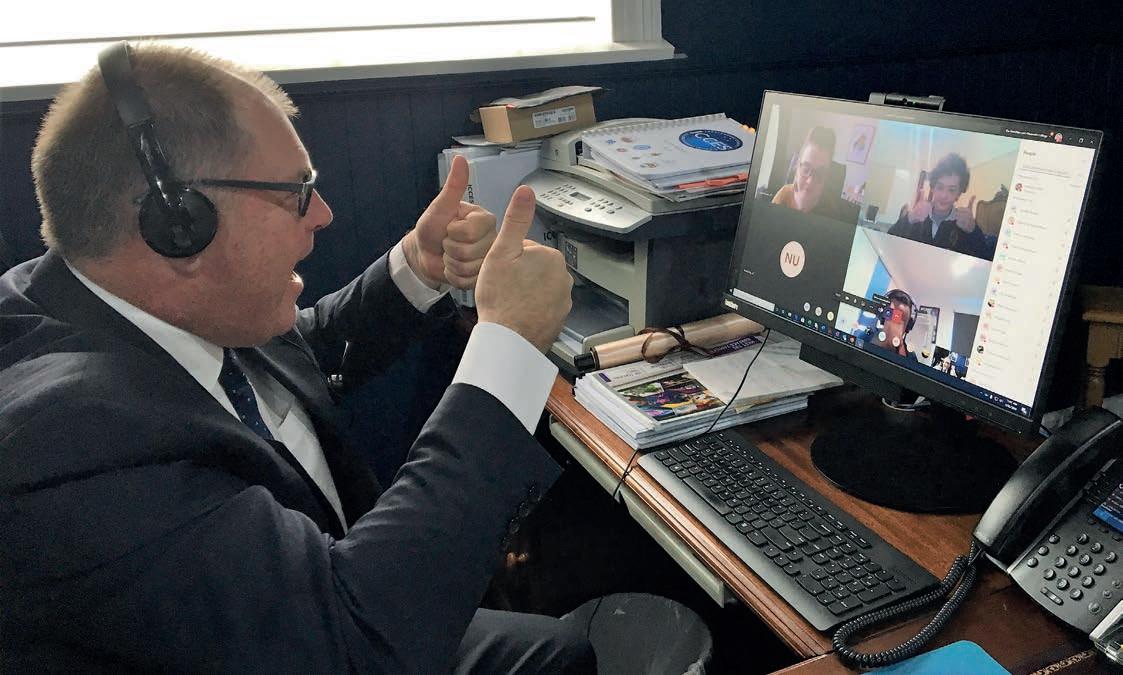
The Hamilton and Alexandra College aims for high academic accomplishment matched with connectedness in life. Critical to all this is a commitment to personalised learning that provides different ways for students to achieve their best. On 23 March, COVID-19 cast a new opportunity to implement a continuous Remote Learning Program from ELC to Year 12. We had a vision to provide consistency, communication and connection and we remained determined to deliver a professional, engaging, sequential learning program to all our students.
We quickly discovered the preeminent place technology would hold in delivery. Staff became researchers of their own practice and evolved into experts at problem-solving as new challenges arose every day. In all honesty, while we could have done without the frenetic pace and turnaround time for implementation, the greatest personal joy was to witness a rekindled respect for the teaching profession.
As April concludes, I am reminded of the sage advice that ‘all stages, good and bad, must eventually end,’ and so will the COVID-19 pandemic. The great irony is that while many will remember this crisis for its isolation, I believe our connections have never been stronger. Our remarkable pastoral care network
underpinned the excellent Remote Learning Program we delivered. We placed enormous trust in each other, and we excelled as a community with the slogan; ‘it is not me, but we’. We remained united in addressing not only learning goals but life goals.
I would like to thank and commend our excellent team of College staff for going above and beyond to deliver exceptional learning experiences for our students via remote learning. In particular, I must acknowledge the work of my Executive and especially Deputy Principal Teaching and Learning, Mrs Susan Bradbeer who only started in this role at the start of the year. The Executive’s leadership, vision and collaboration has been nothing short of extraordinary.
As we fast approach our sesquicentenary celebrations in 2022, we must further strive to better understand and care for our students. Creating confident futures demands a deeper understanding of our children and COVID-19 forced us to, not just think outside the box, but create a new one.
History will undoubtedly record many great moments throughout 2020 but my highlight was that we collectively rose to this challenge ‘together’. By demonstrating a willingness to learn differently, we achieved something exceptional. I could not be prouder!
With teachers and students learning remotely, the College ANZAC Service was done differently this year. Associate Principal Operations, and College Historian, Mr Neil MacLean recorded an address which was streamed online for students and their families on 28 April 2020 during the school assembly.
Neil spoke of the 330 Old Collegians who fought for their country during times of conflict and reflected on the young lives cut short. This year, he focused on one former student who served in the Asia Pacific sector during WWII, the most recent Old Collegian to die in service for his country.
Stephen Gerard Allnut, born in Penola in 1904, attended College in 1918 and 1919. He was in Form 4A and was Dux of that Form in 1919. He became an accountant, married and settled in Melbourne.
Here is an excerpt from the ANZAC Day address:
“Former Prime Minister Paul Keating once argued that the efforts of the new ANZACs during the Second World War deserve more recognition. Kokoda, the Coral Sea, Darwin, the Pacific campaign were all areas fought over when the safety of Australia was imperilled. Keating suggested we should spend more time focusing on those battles as they were about Australia’s immediate national security rather than for the cause of Empire.
“When the Second World War broke out, the first enlistments were transported to the Middle East. As the main force was not immediately able to return home to help defend an increasingly nervous Australia, reinforcements were sought.
“After two years of service in the Citizen Forces and at the age of 36 and a half, Stephen Allnut signed up. He spent five months at Royal Park in Melbourne and in Bendigo, where he appears to have completed largely clerical duties at the training depot. In August 1941 he was appointed Acting Corporal.
“On 6 January 1942, Allnut was posted to a unit of the Australian Army Ordnance Corps … and on 26 January 1942 he disembarked at Singapore. Historians have written that these last-minute replacements arrived “untrained and ill-equipped for battle.”
The Australian forces and their allies were surrendered on 15 February and the next day Allnut was reported missing.
“At some stage, it became known that Allnut was a Prisoner of War and was in a PoW camp in Borneo where he suffered from malaria. The Sandakan PoW Camp is infamous for the deaths of nearly every one of the 2,500 British and Australian prisoners held there.
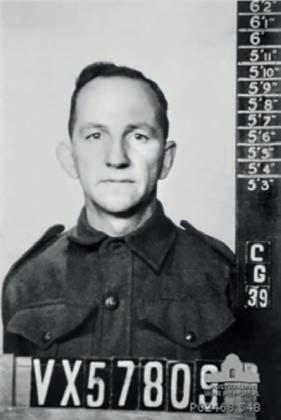
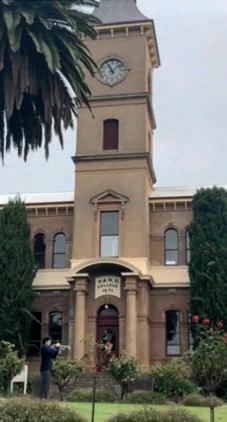
“At a memorial service held in 2010 to commemorate those who died at Sandakan, Governor-General Quentin Bryce told their story:
““For three years they laboured, at gunpoint, to build a military airstrip that would, in the end, be abandoned. They were beaten violently and repeatedly. They were fed scarcely and poorly. Over time, they became severely malnourished and often dangerously ill.”
“Soldiers still alive “were hauled from near collapse and coerced by rifle butt, along a gruelling, mountainous track … for 260 kilometres. Those who could navigate the nightmare no longer, were murdered, or discarded along the way.”
“It is unclear if Allnut died of his malaria or if he perished on the marches but, given his death is officially recorded as 20 May 1945 after the marches had begun, it seems likely he was forced some of the way across Borneo. It is certainly clear that his was not an easy death. Indeed, the Labuan Memorial cemetery, where he is commemorated, is for those with no known grave.
“Think of Stephen Gerard Allnut … and give some thought to the sacrifices he and so many others have made to allow us to live lives of hope and promise.”
COVID-19 has presented many challenges over the past months but never any as harsh, nor confronting, as those our Australian servicemen and women endured. May we and our own children prove worthy of the ANZAC’s sacrifice. Lest we forget.
If you would like to watch the full ANZAC Service, it is available on The Hamilton and Alexandra College channel on YouTube
The Hamilton and Alexandra College’s 2019 VCE results again placed the College amongst the top regional schools in Australia. Learning at College has always been our core business. Through learning we achieve new things and we reimagine the world and our relationship to it. Staff and parents share in this important responsibility as the work of true education has always been about relationships.

Nihindu Ranasinghe, Dux, School Prefect, scored a 99.65 ATAR, placing him in the top 1% of students nationally. Nihindu also scored a perfect 50/50 Study Score in Mathematical Methods
Tarini Mitra, Proxima Accessit – 98.55
Kate Millear, Vice School Captain – 94.65
Jerry Wu – 94.05
Reagan Simons, Vice School Captain – 93.3
Allanah Sander, Berry House Captain – 93.25
Liam Bowman, Music Captain – 93.05
Lachlan Armstrong – 92.9
“Why should I have to be born into such times?” asked Frodo.
Gandalf replied; “It is not for us to choose to be born into such times but for us to choose what we can do with the time that is given to us.”
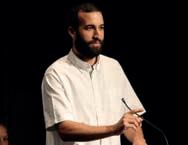
Calder Hamill was the guest speaker at the 2020 Scholars Assembly in February. Calder graduated from College in the Class of 2008. A member of Young House, he represented the College in rowing, cricket, debating, the male voice choir and drama.
Over the past decade, Calder’s career has taken several turns, but each decision has been based on the desire to give back and make a real difference to the world around him. After school, he entered the Royal Australian Navy for his GAP Year, then studied a Bachelor of Laws and practised as a legal intern in Katherine, NT. In 2014 Calder commenced medicine and is now a Paediatric Registrar with the Neonatal Service at the Monash Children’s Hospital.
Calder asked the student audience, “How do we choose what path we are going to take in the future?” There are many answers to that question, but Calder’s solution came to him as a Year 8 College student.
“I had the opportunity to volunteer at the Birches. The elderly residents beamed with pride as they told me why their lives were so good. But there was a discordance in what they were telling me and what society seemed to be valuing. They didn’t tell me how much money they made, how big their house was, or how popular they were. They explained the things they had done to serve their community and contribute to society around them. It struck me that maybe this is what life is about.”
“I questioned: How much can I contribute to society around me? And I realised I had no excuses not to do this. I went to The Hamilton and Alexandra College. I lived in Australia. My demographic was not discriminated. I had no excuses not to do good things with my life and contribute to society.”
“Students, you will all go away and do amazing things with your life after College. Enjoy what you do and that is how you will make the most impact.” - Calder Hamill (2008)
The Class of 2019 looks towards a future where change is a constant driving force and a normal feature in Australian and global markets. The pace of change is challenging and work of the future will be increasingly affected by automation, globalisation and collaboration. But our students are well equipped to capitalise on the opportunities and navigate the challenges as they prepare for the future of work.
Today’s economy is moving towards a service-based industry, with health as the largest and fastest growing industry. This was reflected in our students’ course choices – with 32% of places offered in health-related courses (Paramedicine, Biomedicine, Nursing, Podiatry, Physiotherapy,
Speech Pathology, Osteopathy, Dietetics, Laboratory Medicine, Health Sciences, Dental Science, Psychological Science).
Jobs in the health and services sectors will always require a human touch, but in a world dominated by automation and new innovations, students understand the significance of STEAM skills for growing the economy and to be globally competitive. More than 20% of students received offers in STEAM courses.
Graduates of Generalist degrees (Science, Arts, Health Sciences, Business) will continue to be essential in a changeable employment market. Approximately 30% of students were offered places in Generalist degrees, where they will gain a broad knowledge base and flexible aptitudes, such as problem solving and teamwork, required by workers in the future.
Eight students received Agricultural related offers to Charles Sturt University and the University of New England.
The students’ university choices were driven by their passions and interests, as well as considered research. They were all confident that their decisions would equip them for the future work.
Congratulations to the Class of 2019 and our newest Old Collegians. Although your first year away from College has been unsettling and COVID-19 has caused significant interruption, it is one you will remember forever and the lessons you learn will continue to shape your confident future.
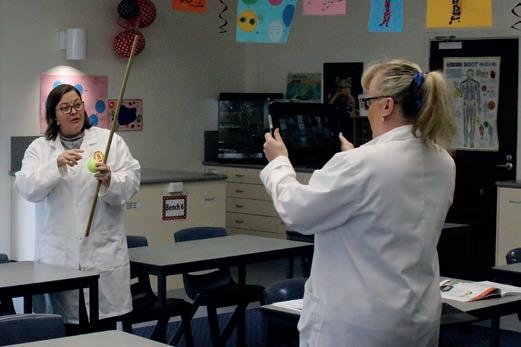

COVID-19 has been on our radar since January, when our International students returned to Australia for the start of the school year. They were isolated for the first two weeks of Term One and we embraced the opportunity to support them through remote learning. The lessons learnt during this period have been applied to our whole school Remote Learning Program (RLP) for Term Two.
With College students located throughout Victoria, interstate and overseas, it was vital that we could use and adapt digital platforms that accommodated all student requirements. College has been using Microsoft Education products for some time, so our Senior School students were able to switch seamlessly to remote learning utilising a combination of Outlook, Class OneNote and Microsoft Teams.
We feel that following the school routine provides certainty, so we start each the day with a Mentor session, followed by six classes. We also have online whole school assemblies on Wednesday and students are wearing their sports uniform to reduce distractions and help them slip into the normal learning mode.
Taking on board lessons from colleagues in NSW schools (who started home learning before Victoria), we adapted our RLP daily timetable to reduce the length of the lessons to 30-minutes. The aim of the shorter classes is to reduce the effect of ‘screen fatigue’ on both students and teachers.
Adapt and adjust
College has a very strong culture of working in partnership with our families, so we are seeking regular feedback and adjusting our RLP where necessary. In the first fortnight of the RLP, we sought feedback from College families over the phone, via an online survey and an online parent information session.
Overall, the feedback was incredibly positive, and we have taken on board recommendations and adapted them into our daily
lessons and schedule. For example, aligning the Junior and Senior School timetables so siblings can enjoy breaks together.
Connection and communication
With our school community physically distanced from each other, connection and communication has never been more important. We have put in place several online communication channels to ensure we all remain connected. For example, the Boarding House has a Wednesday evening catch up, virtual recess sessions are being trialled for year groups, WeChat for our international cohort, and all staff meet each Monday morning.
To ensure we maintain a high level of care and support for all students, we have established Remote Learning Coaches (RLC). The role of the RLC is to contact students (and their parents) who are having troubles with remote learning, aiming to start a conversation that assists the student to create solutions to their own learning. Enhanced student learning will always lead to improved overall student wellbeing - which is our ultimate goal.
RLP silver lining...
It has been very exciting to see our students growing as independent learners. They are learning lifelong skills of communication, collaboration, critical thinking, and flourishing into global digital citizens. When we return to classroom learning, it will be important that we provide opportunities for our students to continue developing these skills.
For our educators, the Remote Learning Program has provided a rare opportunity to innovate, create and refine their practice for the good of our students. I am sure many of our teachers will continue to utilise the new skills they have established and build this into their classroom teaching. In the last couple of months, staff have engaged in rapid professional learning on the effective use of technology and piloted new structures to accommodate a different reality.
We have paid close attention to global research and it has been wonderful to see educators across the world sharing their experiences so that we can all learn together and achieve the best possible outcome for our students.
We continue to seek the best for and from every student
College has a remarkable pastoral care network which is underpinning our RLP. Our school motto is “We seek the best for and from every student” and we are holding strong on this through remote learning and can confidently say, that although the school is doing things differently, we are achieving exceptional outcomes.
I am proud to work with a team of educators who have thrown themselves into this new model of teaching whilst learning to work in new and creative ways. The strong learning partnership we have with students, parents and teachers has ensured we maintain that sense of connectedness with our very special College community during this time of uncertainty.
We are making the best of the current situation and are thrilled to see our students online and engaged each day. We look forward to welcoming everyone back on the College grounds as soon as possible.
As I write this article, COVID-19 is having an unprecedented impact on our daily lives and will probably do so for some time.
While keeping ourselves and our children healthy and safe is our main concern, it’s also essential to address the anxieties of children and keep connected to our trusted and supportive networks.
At College, student and staff wellbeing has remained at the core of all our planning. We know that when people are connected, they have better health and wellbeing outcomes. Therefore, several strategies have been implemented to ensure the whole College community is feeling well supported:
• Regular House and Mentor virtual ‘Team’ meetings
• Year level ‘online chats’ at recess to keep classmates connected
• Weekly Assemblies to maintain whole school collegiality
• The School Counsellor is also available for students at both the Junior and Senior School and is holding regular meetings online
• WeChat and email are the main mediums to keep in contact with our International students
• Weekly Boarding House online catch ups in the evening
• Remote Learning Coaches have been implemented to help students (and their families)
• Staff are participating in a buddy system to connect with each other on a weekly basis
• We’re encouraging students and families to remain in contact via telephone, video apps and social media
• A list of wellbeing resources is available on the school website
During the uncertainly of the COVID-19 implications, I have been reminded of what an amazing community our school fosters and how invested the staff are in the wellbeing of our students and each other. From a social distance of course!

“SUCCESS IS THE JOURNEY, NOT A DESTINATION. THE DOING IS OFTEN MORE IMPORTANT THAN THE OUTCOME.” ARTHUR ASHE
At the Junior School we strongly subscribe to the notion of ‘let’s build the bridge as we walk it’ as we share this remote learning journey with our school community. The COVID-19 crises has certainly challenged us – when preparing for a term of remote learning, teaching and admin staff, parents and our students had nothing to reference. It was all an unknown quantity.
Australian musician, Ben Lee, has a song called ‘We Are All In This Together’ and it starts with… “Woke up this morning, I suddenly realised we are all in this together.” We are so lucky to have an adaptable, passionate and energetic staff, hugely supportive parents and caregivers as well as an optimistic and resilient student body. Regular parent conversations, surveys and online
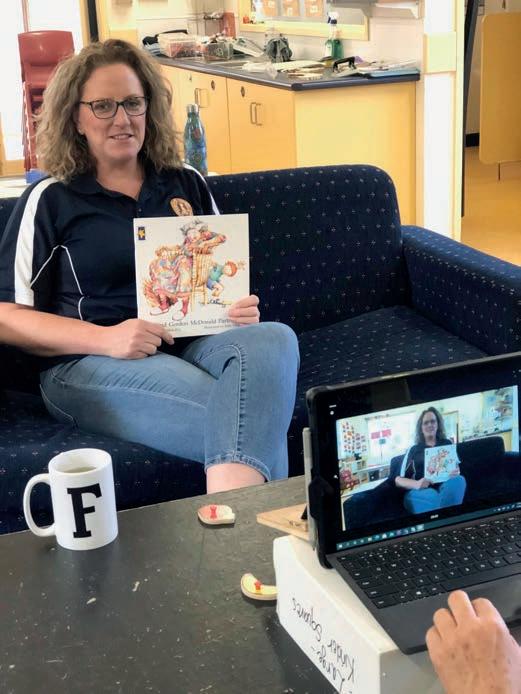
meetings helped us to gather feedback from our important stakeholders (students and parents) and we are regularly adapting our programs and approach to reflect this. After all, we are all in this together.
Remote learning has seen a massive upskilling in the use of online platforms such as Microsoft Teams and Class Notebooks. Students from Prep to Year Six have accessed emails, used online calendars, met staff and peers in online meetings, participated in online Literacy, Mathematics and Inquiry lessons and downloaded/uploaded work and learning materials.
Our Early Learning staff prepared weekly Reggio Emilia inspired showbags for Piccino and Piccolo families to collect and work from at home. Regular Teams meetings, emails and phone calls have kept our youngest learners and their families connected throughout the term. Mrs. Frances O’Brien has become an overnight star, with her video presentations to our Early Learning Centre families – reading stories, making playdough and designing monsters.
When planning our Remote Learning Program, flexible, functional and adaptable classroom timetables have been the cornerstone of our approach. Prep to Year Six teachers have regular scheduled meetings and core lessons throughout the day. Independent work sessions as well as opportunities for collaboration are pivotal features of a student’s week. Year Two and Year Three classes have 15-minute brain breaks to allow students time to recharge, reset and refresh between lessons and an important element of the weekly timetable was to embed consolidation sessions from 2pm onwards which is a time for students to reflect on the day and families to catch their breath.
Wednesdays have been specifically allocated as a Specialist Day. Chinese, Physical Education, Music and Art lessons are available to students to access throughout the day, at a time convenient to them. Specialist teachers are available to students and classroom teachers use the day to touch base with families and plan class work. Online Assemblies occur each Wednesday which is an opportunity for us to come together, share music, celebrate birthdays and connect as a whole school.
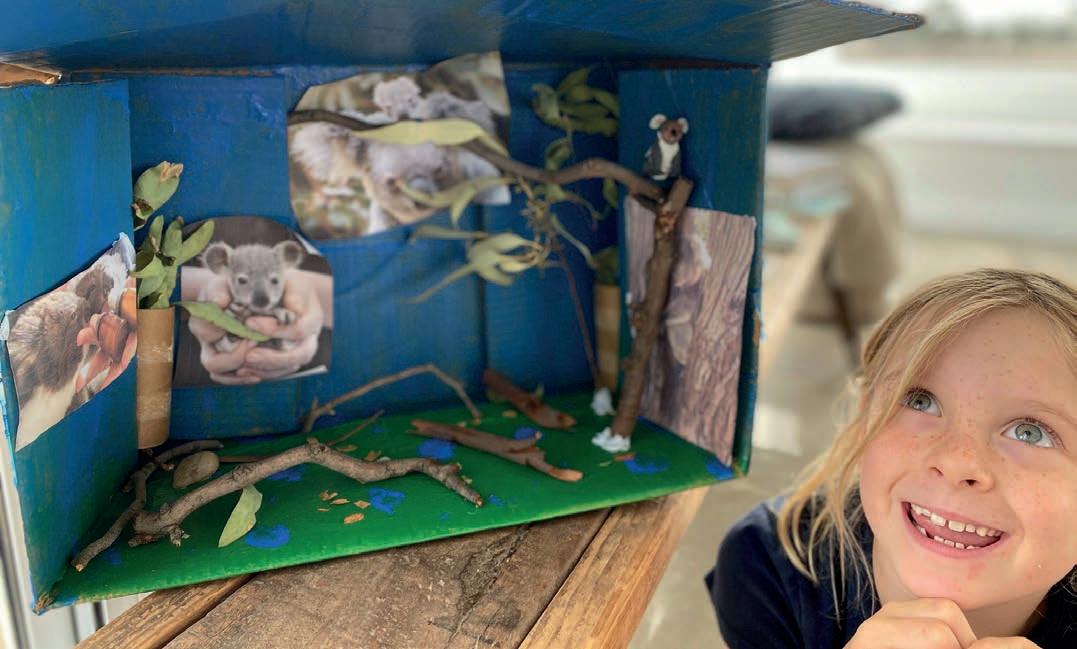
To complement our Remote Learning Program, the Learning Support Team is conducting small focus groups, 1-1 sessions and acting as ‘guides on the side’ for students in core classroom literacy work. Modern online platforms have allowed for Mrs. Drummond to continue her Reading Recovery program and her students to access their daily 30-minute sessions where they are supported to read 1-1.
We know education is a profoundly relational beast. This is our Remote Learning Program challenge. Teacher and student interactions and relationships are forged in the classroom. Term Two 2020 has been a different space for us all to navigate, but I have been immensely impressed with our Junior School learning community and I sincerely thank teachers, students and parents for their hard work!
From the outset, we have viewed remote learning as a marathon, not a sprint. We are achieving strong results and it is wonderful to see the connections continue to form across our school community. There is no doubt that we can’t wait to have our students back on the school grounds to feel the true Magic of Myrniong again.

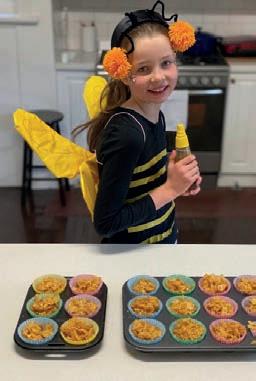


Last year, we launched an exciting project with the Geelong Grammar School Institute of Positive Education: Harnessing Positive Education in the Western District. This project was the vision of Dr Geoff Handbury AO - to establish a thriving Positive Education Hub in the Western District that would benefit all young people in the region.
Geoff was ahead of his time and had a deep understanding of why positive psychology is so important. He intuitively cared about the wellbeing of children and was focused on building their resilience, optimism, engagement and meaning in all areas of their lives.
In 2019, we hosted over 60 educators from 30 schools in a threeday Discovering Positive Education Course and one-day training on the Positive Education Enhanced Curriculum. These sessions were led by the Institute of Positive Education and we have already seen an increased collaboration of local educators working together to develop their projects.
Geoff and his family generously sponsored the start of the Western District Positive Education Hub, and I look forward to developing the Hub as a legacy to this generous and kind man. I’m pleased to say that we now have 60 schools involved in the Western District Positive Education Hub
I knew Geoff for close to thirty years and I feel personally connected to his vision that all students have access to Positive Education; to the ideas and skills that will enable them to flourish in their adult lives.
Tough times don’t last, but tough people do
We are currently in extraordinary times. The COVID-19 pandemic has thrown our lives into turmoil and highlighted the need for psychological flexibility and the importance of positive psychology. We are navigating new challenges whist helping our children grasp these daily changes.
Our normal support systems, such as sport and seeing our friends are disrupted, and this situation has shone a light on the need to look after our mental health, and help our children
adjust to the changing paradigm. This is an opportunity to build communities and bring our best self to every challenge
We are using the best of our real-time resilience skills to adjust to having our families working and learning from home. We need to give ourselves permission to get things wrong, say sorry, be less productive than we’d like, and hold space for all emotions. Also, we must actively embrace the silver linings that are present each day.
Let’s remind ourselves and each other that “tough times don’t last, but tough people do”.
Positive Education is a philosophy; a proactive approach to helping staff and students improve their wellbeing. At College, our goal is to teach the skills of wellbeing. We believe in providing them with the ‘toolkit’ so they can flourish during adolescence and in their adult lives.
Positive Education four key takeaways:
1. GRATITUDE - Be grateful for the good things in your life. This is a simple way of shifting to positive thinking.
2. POSITIVE RELATIONSHIPS - Build strong relationships; be kind; forgive friends; treat each other with respect.
3. POSITIVE AND “REALISTIC” OPTIMISTIC MINDSET - Focus more on positive emotions rather than the negative ones.
4. RESILIENCE - Resilience is not all or nothing. You can be a little resilient, a lot resilient, resilient in some situations but not others. No matter how resilient you are today, you can become more resilient tomorrow. Resilience requires flexible thinking.
I remind everyone, wellbeing is NOT a spectator sport. You need to be actively attending to your wellbeing, engage with the ideas and try new ways to improve your wellbeing.
Wishing you all the best during these challenging times.

“WE MAKE A LIVING BY WHAT WE GET, BUT WE MAKE A LIFE BY WHAT WE GIVE.”
I am deeply honoured to provide this tribute for my great friend Dr Geoff Handbury AO, who passed away peacefully aged 94 on November 26, 2019.
Much has been written honouring Geoff, as he preferred to be called. Together with his beloved wife Helen, the couple moved to Western Victoria in 1973. Geoff lost the love of his life when Helen passed away in 2004. Devastated by his personal loss, Geoff then set about continuing the legacy that he and Helen had built over so many years. Geoff and Helen were great partners, and Geoff and I often reminisced how Helen’s profound wisdom and humility helped further shape Geoff’s attitudes and actions.
There may never be anyone to rival Geoff Handbury in terms of the impact he has had on Western Victoria over nearly 50 years. Survived by four children, 13 grandchildren and 27 great grandchildren, Geoff’s extraordinary generosity and kindness extended to all sections of the broader community, but most notably to health, education, agriculture, environment, the arts and adolescent mental wellbeing. In recent years, he took it upon himself to centre his focus and passion on helping young people adapt to, and then flourish through, the challenges of modern society.
The College’s Middle Years Positive Education Centre, the Geoff Handbury Sports Centre and the Neil MacLean Hockey Field are all recent projects supported by Geoff, recognising that nurturing students’ character strengths, building positive relationships, enabling confidence and resilience are all fostered by explicit teaching of wellbeing, and active involvement in sport and the arts. Geoff’s support for Orchestra Victoria (OV) and the College’s partnership with OV gave him great joy and brought music excellence and enjoyment to the broader Hamilton community.
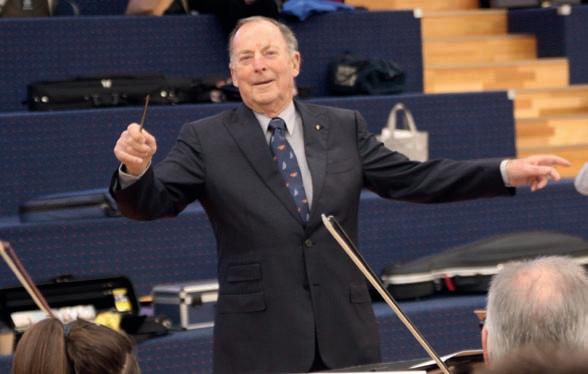
Over the years, Geoff and Helen’s extraordinary generosity to the College and other schools in the area transformed educational opportunities for current and future generations of students, ensconcing Hamilton’s reputation as a Centre of Educational Excellence
I had the honour of calling Geoff my close friend, and I have so many great memories of our times together. Geoff became a special part of my family, and the Handbury family in turn generously made us feel a part of theirs. He had a unique generosity of spirit and a wealth of wisdom, which he frequently and passionately imparted. He would never hear an ill-word being spoken of anyone, quoting his late father in law Sir Keith Murdoch’s view that it is too easy to find the bad in people, but it is a gift to find the good in them. Geoff lived by that adage. He was kind and always quick to highlight the positives in others, and his energetic attitude was infectious. When Geoff spoke, people listened, and they inevitably walked away with renewed courage and vitality. He had the gift of making anyone in his presence feel comfortable, at ease and important.
The numerous honours bestowed on Geoff Handbury were richly deserved yet they may never truly do justice to this unique and remarkable human being. Geoff’s humanity was only ever matched by his wife Helen, and together they were a formidable couple like no other. Geoff once said to me: “I get more pleasure in giving than you get in receiving”. He saw his philanthropy as providing people with a hand up, not a hand out, championing projects which helped others and strengthened collective community wellbeing.
Geoff had a major and lasting impact on thousands of lives, and his spirit lives on. On behalf of my family and the broader College community, I express my deepest sympathies to the extended Handbury family.
1. Mark Brian (former Council Chairman and Foundation President), Bruce Simons (past Principal), Hon Dan Tehan MP and Dr Geoff Handbury OA 2. Dr Geoff Handbury AO conducting with Orchestra Victoria in the Simons Auditorium
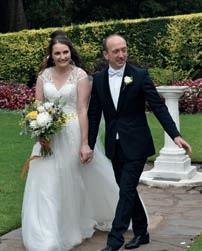
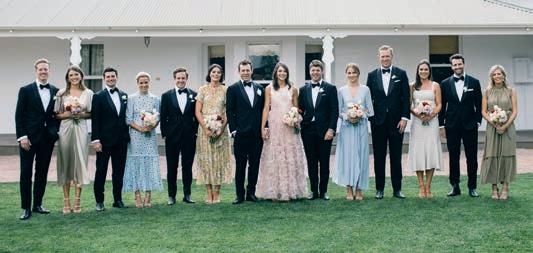
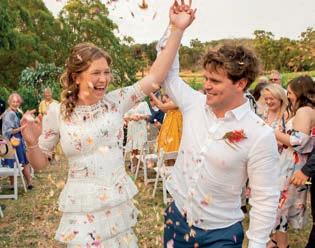
WILLIAMSON: ISABEL (HOLMES 2002) and Rowan, a son Frederick Peter on 7 September 2019 – a brother to James
CARAH: CATHERINE (HUTTON 2004) and Alex, a son Charles Alexandra John on 27 November 2019 – a brother to Grace
LUCAS: ANNA (GRIFFIN 2004) and Tom, a son Henry Alexander Griffin on 12 December 2019
BUNNEY: JENNETT KELSALL (1999) and Paul Bunney, a daughter
Sophia Charlotte Kelsall on 16 December 2019
DAVIDSON: VICTORIA BURLEIGH (2009) and Luke, a daughter
Florence Mae on 1 January 2020 – a sister to Hazel and Braxton
OSMOND: GEORGE (2001) and Kellie, a son Sidney Guy George on 16 January 2020 – a brother to Victoria
CASSANDRA PRICE (2008) and Dale Hood
HARRY KELLY (2009) and Prue Mitchell
SAMUEL WINTER COOKE (2011) and Katie Budenberg (staff) on 31 December 2019
OLIVIA FLEETWOOD (2007) and Henry Weddell on 25 January 2020
SOPHIA LE PLASTRIER (2007) and Charles Palmer on 23 March 2020
ADRIANNE STANGEWITZ (SMITH 1956) in September 2019
ELIZABETH ROBERTSON (LAIDLAW) in November 2019. Elizabeth was a student at Alexandra College in the late 1930’s
THOMAS LAIDLAW (1941) in December 2019. Thomas was Hamilton and Western District College Captain and Champion in 1941
ROSE ANNE (ANNE) MARNELL in March 2020. Anne was a member of the cleaning team for many years
JOHN HYDE (1946) in March 2020. John attended Hamilton and Western District College from 1941-46. He was a Geelong Football Club premiership player in 1951 and 1952 and later coached Hamilton to premierships in 1957 and 1958.
JOHN NORRIS (1945) in April 2020
JOHN FENTON (1948) on 15 May 2020 (tribute in next edition)
DAWN SHOEBRIDGE (1955) in December 2019
Dawn Shoebridge was a pivotal part of the College as a student in the 1950s. She was Head Prefect in 1954 and 1955 and both athletic and academic Dux in 1955. She was a member of almost every Alexandra College sporting team and shone in hockey and basketball. After school she became an educator, teaching for many years and culminating in a Principal position. Following her teaching career Dawn returned to Hamilton and began farming. In her later years, she was a regular attendee at College reunions and enjoyed immensely the history of the school.
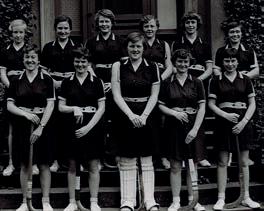
JAN CAMERON (BARBER 1969) in April 2020. Jan was at College from 1965-69 Jan was born at Gringegalgona and had a country childhood with her siblings. Jan was an astute businesswoman, running Country Stitches in Heywood while farming at Drumborg, and later a well-respected real estate agent in Hamilton. Jan was very well known in the Western District and will be fondly remembered for her generosity, professionalism, kind nature and her sense of fun.
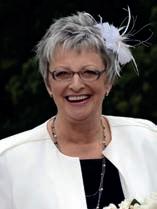
The Class of 1979 caught up in Melbourne in October last year; many happy College stories and laughs were shared.

THANK YOU TO OUR OC’S ON THE FRONTLINE
Thank you to all Old Collegians working on the COVID-19 frontline and in essential service roles. Your support for all Australians during this pandemic is appreciated.




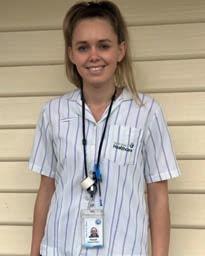
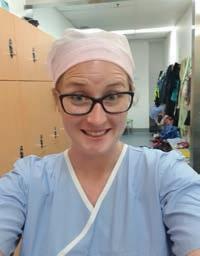
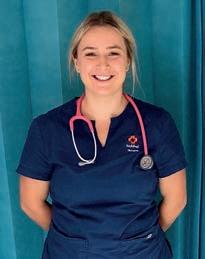
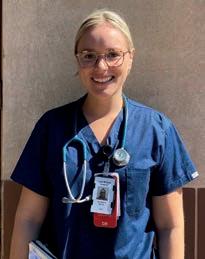
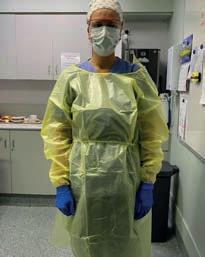
Some of our Old Collegians in essential services:
1. TOM BENSCH (2015) Royal Melbourne Hospital Radiology, VIC
2. LUCY BUNGE (2015) final year Physiotherapy student at Lyell McEwin Hospital, Adelaide SA
3. EMMA HINES (2015) Registered Nurse at The Alfred Hospital, Melbourne VIC
4. EBONY MILICH (2015) Registered Nurse at Epworth Hospital, Richmond VIC
5. CASEY PEACH (2014) Registered Nurse at Western District Health Service, VIC
6. MADDY PERTZEL (2014) Registered Nurse at Epworth Hospital, Richmond VIC
7. HANNAH BENSCH (2013) Registered Nurse at Port Fairy and Warrnambool Hospitals, VIC


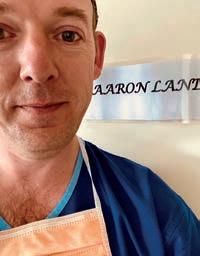
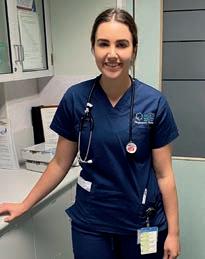
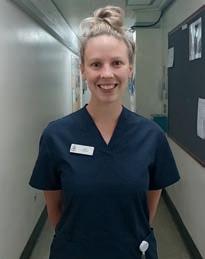
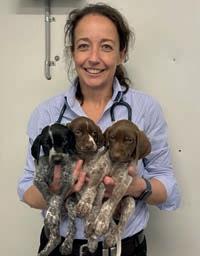
8. DR JESSICA BARNES (2012) Emergency Department Intern at Modbury Hospital, Adelaide SA
9. MADDY LOWE (2012) Emergency Department Nurse at Barwon Hospital, Geelong VIC
10. JANE STEPHENS (2008) Emergency Department Pharmacist at Royal Melbourne Hospital, VIC
11. DR HELEN FRASER (2006) Specialist General Practitioner and Anaesthetist at Ayr Hospital, QLD
12. PENELOPE VAN DEN BERG (LE PLASTRIER 2006) Registered Theatre Nurse at Rockhampton Hospital, QLD
13. AMANDA NAGORCKA (MACK 1996) Registered Nurse at the Western District Health Service, VIC
14. DR AARON DONOVAN (1995) Surgeon at Portland Hospital, VIC
15. KRISTABEL LEWIS (SCHINCKEL 1991) Veterinarian at Cox Street Vets, Hamilton VIC
